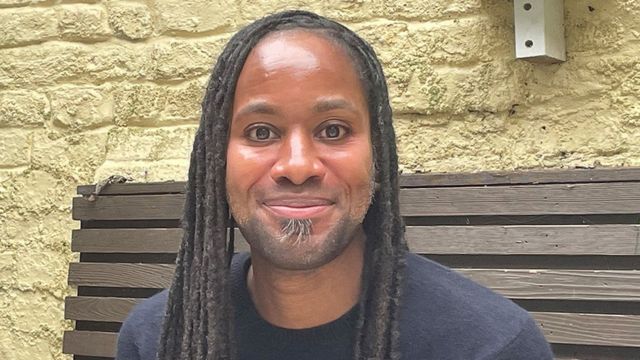Jason Arday
There is so much misery in the world that when something uniquely beautiful about humanity catches our attention, we must celebrate it.
Would you ever have believed that a black boy growing up in a Britain where many of the organisations that control citizens’ lives have been officially described as “institutionally racist”, would be able to grow up to become a Professor at one of the most prestigious Universities not only in the UK, but in the whole world: Cambridge University? Would you have believed that he would attain this high and enviable academic position at the young age of 37?
You agree that this is remarkable, don’t you? Well, what would you say, then, if I also told you that this young man could not SPEAK UNTIL HE WAS ELEVEN YEARS OLD?
That he was classified as an ‘AUTISTIC’ child and could neither read nor write until he was EIGHTEEN YEARS OF AGE?
According to the London Guardian newspaper, the newly-appointed Cambridge Professor, who is called Jason Arday, will become one of the youngest-ever black professors at Cambridge. He is a sociologist, and has stated that he aims “to inspire others from disadvantaged and under-represented backgrounds”.
As mentioned earlier, Arday was unable to read or write until the age of 18, and was working part-time at the chain store, Sainsbury’s, less than eight years ago.
He is now “a highly respected scholar of race, inequality and education”. Yet when he was three years, old he was diagnosed with what was called “global development delay” and “autism spectrum disorder,” and did not learn to speak until he was 11.
But on 6 March 2023, he will take up the post of Professor of Sociology of Education at Cambridge, and he hopes his extraordinary story will inspire others from under-represented backgrounds to progress into higher education.
He will be building on earlier work he had done at the Universities of Durham and Glasgow, which addressed the paucity of black and minority ethnic people in higher education in the UK, their under-representation in academic careers, and the challenge of creating more equitable educational experiences and outcomes for all.
In his own words, Prof. Arday states: “My work focuses primarily on how we can open doors to more people from disadvantaged backgrounds and truly democratise higher education, Hopefully, being in a place like Cambridge will provide me with the leverage to lead that agenda nationally and globally.”
He added: “Talking about it is one thing; doing it is what matters. Cambridge is already making significant changes and has achieved some notable gains in attempting to diversify the landscape, but there is so much more to be done – here and across the sector.”
Prof Arday was born and raised in Clapham, south London, and was one of four children. Until the age of 11, he used sign language, and much of his childhood was spent with speech and language therapists. His family was told it was likely he would need lifelong support. But he DEFIED all expectations.
He managed to gain two GCSEs and then studied for a BTec at college. He next completed his first degree in PE and education studies. After that, he acquired TWO Master’s qualifications, a PGCE to become a PE teacher, and a PhD at Liverpool John Moores University. He funded his studies by working part-time at Sainsbury’s and Boots!
The Guardian reports him as saying: “The message of my story for other young people from under-represented backgrounds is that “everything is possible”.
He added: “I knew I didn’t necessarily have huge amounts of talent, but I knew how badly I wanted it and I knew how hard I wanted to work.”
It should not, however, be just down to individual endeavour – the system had to change too, Arday said.
“At Cambridge there’s been some really, really useful and powerful pockets of good practice. But there’s still lot of areas of development, as there is across the sector.
“A big part of the sector’s problem is that it does things in a very unsustainable way. It often leans on the labour of black and ethnic minority professionals and academics, to do this labour unremunerated and unrecognised.”
He highlighted a piece of research carried out by the BBC research in 2018 which found that black and ethnic minority academics were “being paid less than their white counterparts, with white academics receiving average salaries of £52,000 and black academics £38,000.”
“The final thing,” Arday warned, “is recognising how violent some of these spaces can be, and decision-makers recognising that to be a serious challenge towards the mental health and psychological well-being of black and ethnic minority people, particularly women of colour, and more specifically black women in the sector, who, to be quite honest, are treated differently.”
Arday pointed out that black women were among the lowest paid in the sector, and that, out of 24,000 professors in the UK, just over 160 were black and just over 50 were black women.
“If things are going to change,” he said, “it’s going to take a sustained commitment by institutions to really think about how they engage with the politics of race”, he added.
The name Arday has the ring of Ghanaian ancestry. But I could not confirm this in the time available.
By CAMERON DUODU


